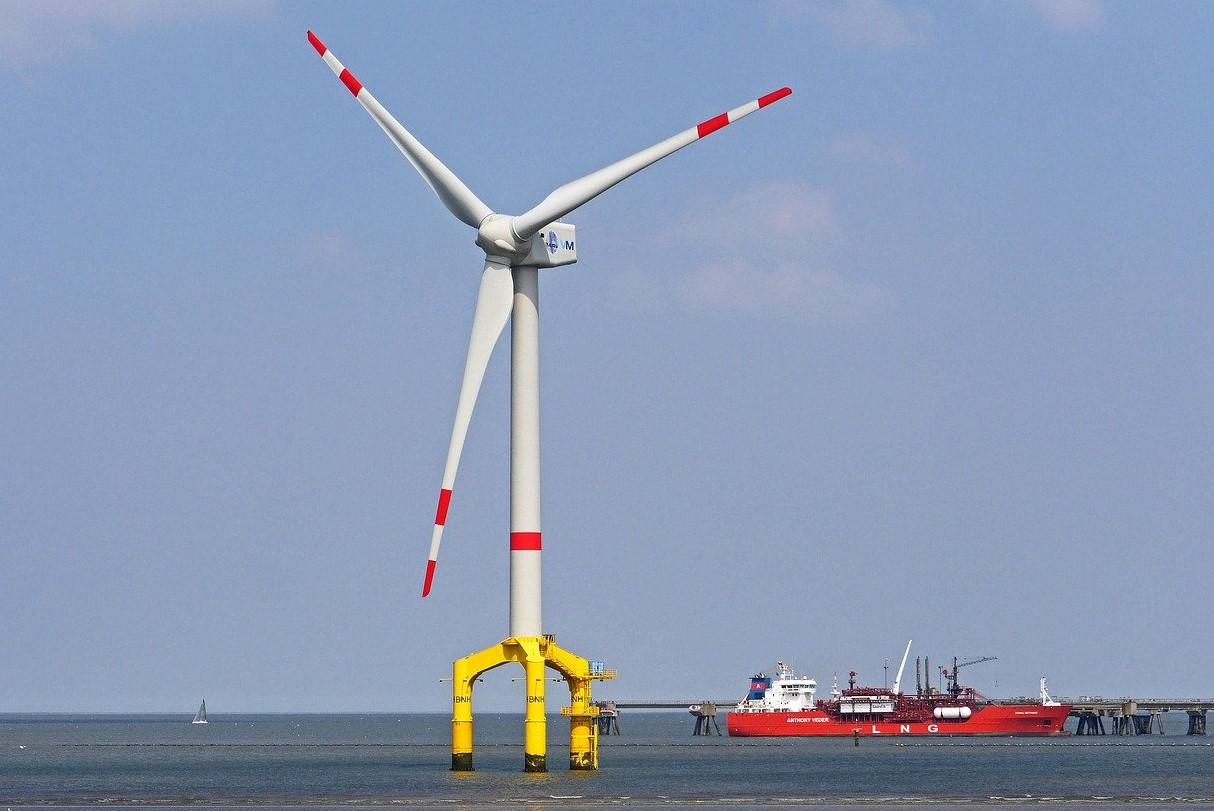
by Diego Gavagnin
Natural gas and LNG apparently disappeared from the radar of European politicians and national governments. Only a year ago, the development of the European natural gas system was considered essential for the closure of coal- and oil-fired mines and power plants, which was technically possible immediately.
Now the focus is all shifted overnight to alternative energy sources with even less environmental impact, such as hydrogen. It is expected to penetrate energy systems and transport with a significant share in 2050 (about 6% in Europe and 23% in Italy, depending on the studies).
Nevertheless, scientific and technological development for the widespread use of "green" hydrogen, produced with surplus electricity from renewable sources and water electrolysis, represents an opportunity that must be pursued to the full. Great attention is paid to the public funds provided by the EU's Next Generation programme of 750 billion euros.
In the meantime, the Small Scale LNG continues to move forward with ever-increasing achievements, technological developments and innovative solutions, which our newsletter seeks to report on. The development of direct uses of LNG has never aroused - in our view - adequate interest except in the specialised press, despite being the main protagonist of the "energy transition" at the moment.
Little is said about it, despite the fact that investments in the small scale are now worth billions of dollars a year and that LNG as a whole has exceeded the natural gas transported in pipelines by consumption. Characteristic of the small scale is the fact that it is characterised by widespread investments, of relatively small unitary size, which do not require large financing decided by politics.
Natural gas is also a "fossil" gas, even if it can be integrated and replaced in the most eco-efficient uses by bio-methane and, above all, by the bio-small scale LNG, which has a neutral climate impact and is produced with organic civil, industrial and agricultural waste.
Natural gas cannot be dispensed with, at least until 2050 if not later. If we are going to use it for at least another 25 years it is good to do it at its best, but there seems to be no more hurry. We do not see, at EU and Italian level, any strategic initiatives or interest in tackling the subject, despite the fact that Europe is the continent that consumes and imports more of it.
Proposals to revise the European Directives on the natural gas market are expected next year, while at EU level it is difficult to address the issue of methane emissions, which are climate-altering but containable. The ongoing debate in Brussels on the DAFI, the Directive for the infrastructure of alternative fuels to oil, which ConferenzaGNL dealt with in webinars at the beginning of the summer, is also no longer being discussed.
The "Emission Methane Strategy" of the Commission for the reduction of emissions, is silently within the year, and should also consider the need not to penalize European importers and consumers, with mechanisms capable of inducing "virtuous" behaviour even in exporting countries.
Italy imports more than 90% of the gas it consumes; reducing our emissions, which are already limited, while other countries around us, which are much more emissive, do not reduce theirs, does not make much sense, but this is already happening with the CO2 "contained" in the products we import from countries that are less attentive to the environment than Europeans.
Distraction in the natural gas and LNG supply chain also overlooks another important aspect, represented by the precursor and facilitator role of evolved "gas systems" for the development of the widespread use of hydrogen as a fuel, whether it is transported by tankers and tankers, as is the case today for the small scale LNG, or by pipelines.
The evolution of LNG from fossil to renewable and the relationship with the direct uses of liquid methane and hydrogen will be two of the main themes of the forthcoming 6th International Conference and Expo on small scale LNG, the main two-yearly international event in the sector for Europe and the Mediterranean area (Bologna 5-7 May 2021).
 EN
EN  it
it

